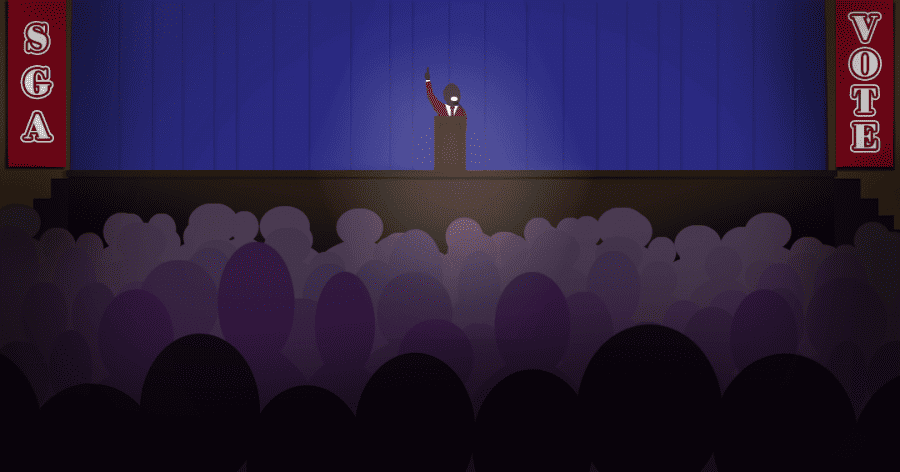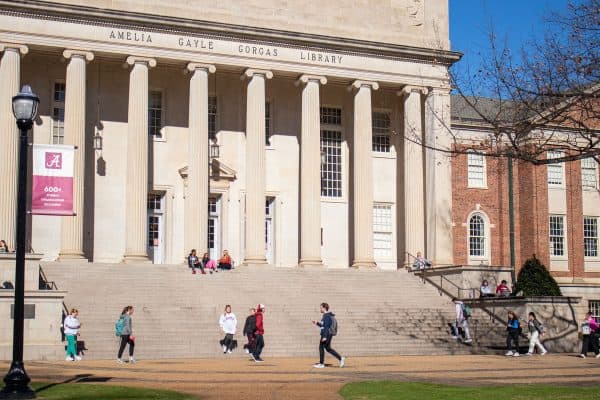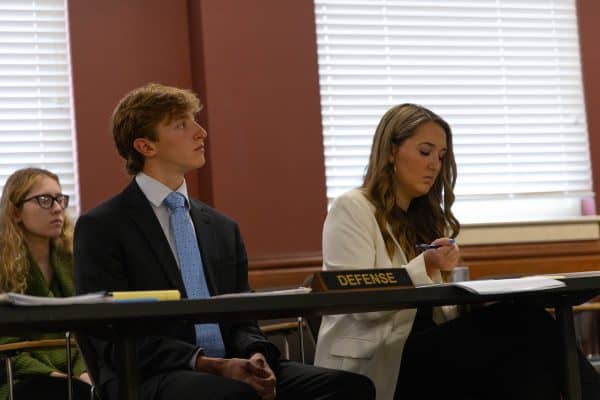How COVID-19 affected SGA election season
Like most parts of campus life these days, campaigning went mostly online.
March 1, 2021
As social distancing guidelines and other COVID-19 restrictions continue to affect student life nearly a year after the declaration of the pandemic, the UA student body will soon get to witness how their student leaders will handle this year’s unprecedented Student Government Association (SGA) election.
The official candidates for the senate and executive positions were released on Feb. 23, and the SGA Election Board Manual has been updated with guidelines and regulations for events that would normally occur during election season, such as the election timeline, budget limits and campaigning rules. It does not, however, mention that the election or campaign season will have to function differently given the state of the pandemic.
Where are the social distancing guidelines?
In contrast to past years, University-endorsed events such as the Senate Forum and Executive Forum will be held over Zoom. Outside of this administrative effort, however, it’s up to each candidate’s discretion to decide whether they will observe the University’s COVID-19 regulations.
Outlined in the manual are numerous restrictions that, when broken, result in infraction points. When a candidate accumulates 12 points, they will be considered for disqualification from the election. There are four types of infractions: minimal, minor, intermediate and major.
Each type of infraction results in a different amount of points (minimal infractions receiving only 1 point, and major infractions receiving 9 points). Breaking social distancing guidelines on campus grounds while campaigning is not included in the manual as resulting in any infraction point accumulation.
The executive SGA candidates may be running unopposed on the ballot, but campaigning efforts are still in full swing. Some in-person campaigning events are still occurring outdoors, allowing students who are comfortable to meet their candidates.
Jill Fields, SGA Presidential Candidate, held a “T-Shirt Tuesday” event outside of Gorgas Library on Feb. 23, where she handed out pins and took photos with students. One photo shows Fields shoulder-to-shoulder with 16 other girls. All parties are wearing masks, but no social distancing is in place.
According to Jack Steinmetz, a sophomore majoring in mechanical engineering and current SGA senator and candidate for vice president of student affairs, campaigning looks a lot different for him this year than it did last.
“Social media has become the main focus of campaigning,” Steinmetz said. “Last year, I was positioned right in front of Shelby since I was running to be senator of the College of Engineering.”
The online nature of this campaign season has had a variety of effects.
“It’s been more difficult in the sense that we can’t go in person on the Quad to talk to students,” Steinmetz said.
Silver linings
Social distancing guidelines, however, may have a silver lining.
“I honestly think the Zoom forum provides a more accessible opportunity for students to come and voice their opinions to candidates,” Steinmetz said.
For those running for a position in SGA for the first time, this campaign season may seem particularly daunting.
In past years, candidates have been able to meet their voters in person, and although they are not explicitly restricted from doing so now, it runs the risk of reflecting poorly on the candidate.
Ella Kutner, a freshman majoring in political science and candidate for senator of the College of Arts and Sciences, said that despite less face-to-face interaction between students and candidates, social media can be a beneficial way to convey platform points to a large audience.
“[The pandemic] has put a big stress on social media engagement, whether that be sharing posts or creating graphics, which ultimately is kind of fun,” Kutner said.
With the increased necessity for social media content and the overall effect that the pandemic has had on student interaction this election season, candidates’ preparation plans were likely more time-consuming than ever.
Keeping up with the times
Preparing for the SGA election season is a long process, even under normal circumstances: Campaigning teams need to be put together, promotional material needs to be created and platform points need to be decided upon.
Last March, COVID-19 brought along countless changes to campus, and it continues to do so. Given that vaccine rollout is still in its primary stages in the state of Alabama, the placement of COVID-19 legislation and campus relief on our candidates’ docket is not as all-encompassing as it may have been a semester ago.
John Dodd, a junior majoring in political science, and another first-time candidate for senator of the College of Arts and Sciences, said COVID-19 is not taking over the campaigning platforms as much as it seemingly could.
“When it comes to COVID, originally I had thought about adding some kind of COVID response point to my platform, but the municipal leadership with Walt Maddox is doing a tremendous job with COVID guidelines, and the campus is doing a pretty good job as well,” Dodd said.
With the current COVID-19 guidelines already in place and many virtual, university sponsored events being held, several candidates are taking time this election season to focus on topics that aren’t strictly within the realm of COVID regulations. From expanded DEI education to sexual assault prevention, some candidates have their sights set on achieving more progressive campus values and continuing to improve UA for their fellow students, no matter the circumstances.











